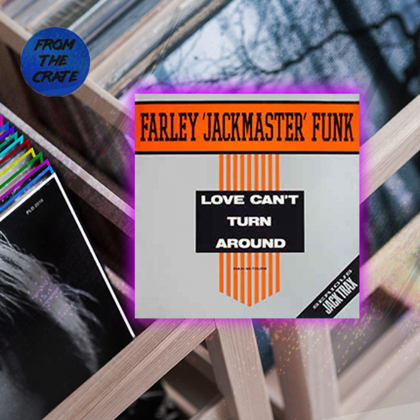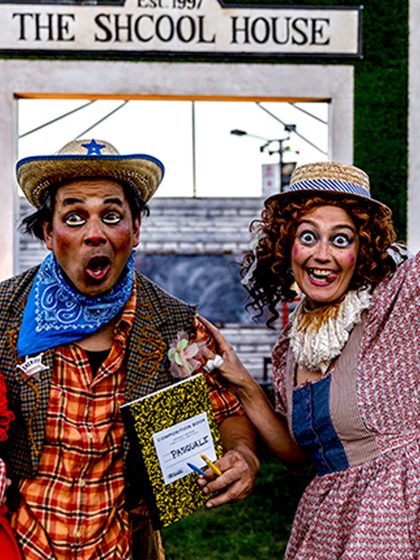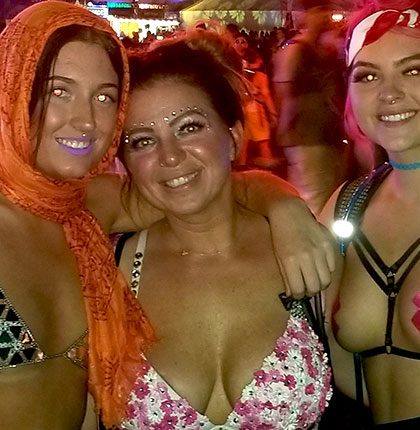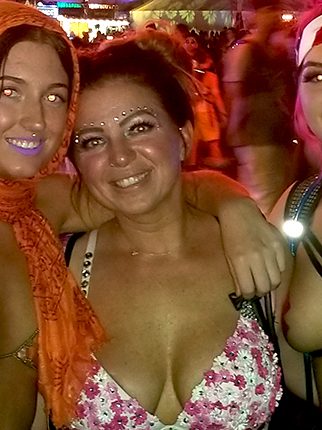8 Streets Renamed to Honor Dance Music’s Greatest DJs
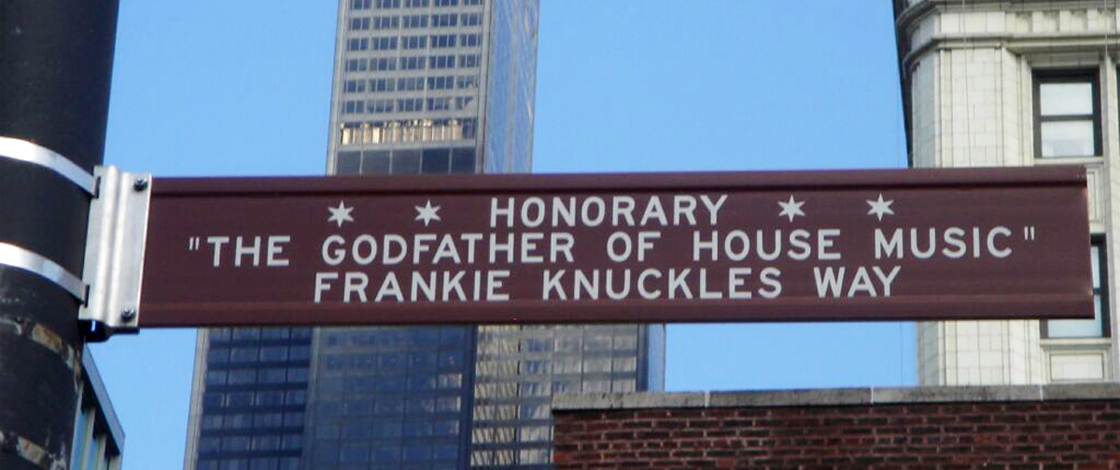
Jefferson, make way for Frankie Knuckles. Just over a decade ago, a stroll through a city like Chicago or New York would take you to streets named after revolutionaries and presidents. Now, you can add a few more American heroes to that list: the founders of hip-hop and dance music.
What can the little guy do to honor someone as big as Frankie Knuckles, the creator of house music? What about DJ Kool Herc, the creator of hip-hop? Unless you’re a successful producer yourself with money to blow, chances are a monument or a building—say, Knuckles’ old warehouse haunt, or the space where Kool Herc is said to have invented hip-hop—aren’t in the cards. The block where those buildings stood, though? That’s fair game. In Chicago, New York, and Union City, dance music fans rallied for street corners, boulevard blocks, and avenue segments to bear the monikers of their favorite legendary DJs. Here are the eight streets that made the city planners’ cuts.
1. Frankie Knuckles Way
Frankie Knuckles moved from his hometown of the Bronx, New York, to Chicago in 1977. There, he acted as the musical director and resident DJ of the Warehouse, a hole-in-the-wall club at 206 South Jefferson Street, owned by legendary club promoter Robert Williams. Though the Warehouse has since closed down, the block it sat on was renamed Honorary Frankie Knuckles Way in 2004.
SEE ALSO: My Philosophy: Frankie Knuckles
It was at the Warehouse, under the guidance of Knuckles, that house music got its start in the US. Widely known as the “godfather of house,” Knuckles grew up on disco and got his start at New York’s most influential disco clubs. But it was in Chicago at the Warehouse where he honed his sound, a mix of music that ranged from funky to soulful to rock ‘n’ roll—the sound that would eventually come to be called house music. From Knuckles’ turntables in that Jefferson Street club, Chicago house spread across the world.
2. Hot Mix Five Way
In 2007, the Hot Mix Five crew, who helmed Chicago’s WBMX-FM radio station in the ‘80s, was presented with an honorary street, Hot Mix Five Way, at the corner of Columbus Drive and Balbo Avenue. The five radio DJs—Farley “Jackmaster” Funk, Kenny “Jammin” Jason, Mickey “Mixin” Oliver, Ralphi “the Razz” Rosario, and Julian “Jumpin” Perez (who replaced Scott “Smokin” Silz)—made WBMX into the number-one radio station in Chicago with their diverse sets and remixes.
Each guy had his own unique style, with incredible turntable skills to match, and their show regularly aired to millions of eager ears. The Hot Mix Five rose to become kings of house music, using their influential radio slots to spread the genre to every corner of the city, while their fans recorded the shows on cassettes and spread them around the States. Along with Hot Mix Five Way, each of the six DJs got his own honorary street—a few of which still stand today.
3. Run DMC JMJ Way
New York recognizes that its hip-hop roots run deep. In 2009, that recognition became permanent in the form of a street dedicated to groundbreaking group Run-DMC’s DJ Jason Mizell, also known as Jam Master Jay. Run DMC JMJ Way is located in Queens, at the corner of 205th Street and Hollis Avenue, in the neighborhood Run-DMC emerged from in the ‘80s. Tragically, Mizell also died in Queens at only 37 years old, when he was fatally shot in his recording studio.
The Run-DMC trio is credited with thrusting hip-hop music into the mainstream, thanks to their unique blend of rock and rap. While rappers Joseph “Run” Simmons and Darryl “DMC” McDaniels delivered on vocals, Mizell worked the turntables in addition to playing keyboards, bass and drums for the group.
4. Kenny Jammin Jason Boulevard
Kenny Jammin Jason was Hot Mix Five’s most experienced DJ when the group formed in 1981. In 2010, he was honored with a street sign at the corner of Kedzie Avenue and Logan Boulevard, near Logan Square in Chicago. (You can watch the unveiling here.)
5. Erick Morillo Way
New Jersey’s Union City renamed a block of their Bergenline Avenue after hometown hero and major dance music producer Erick Morillo in 2012. Morillo grew up in Union City at 1406 Bergenline, where he spent much of his time mastering the art of DJing in his bedroom before leaving to pursue his international music career. An innovator in the dance music scene, his fame exploded when he and the Mad Stuntman formed Reel 2 Real and released “I Like to Move It.” Since then, his roster of collabs hasn’t slowed down, having included names like P. Diddy and Busta Rhymes. Morillo is also known for his label Subliminal Records.
Morillo’s 68,000-person hometown honored him at a special unveiling ceremony, which both he and his mother attended, and he returned the kind gesture by donating 100 Nook tablets to one of Union City’s local schools.
6. Farley Jackmaster Funk Way
In 2014, the city of Chicago approved another street name overhaul in the name of Hot Mix Five—this time on the 1300 block of South Michigan Avenue. The block was renamed to honor DJ Farley Jackmaster Funk, a king of house music in his own right. He became wildly popular thanks to his tenure with the Hot Mix Five, but one of his greatest contributions to house music was his active role in bringing it to mainstream audiences. While Frankie Knuckles—whom Funk openly admits to having imitated for much of his early career—was spinning sets at the Warehouse, Funk tried to usher house into a new era.
That era started at the Playground, a mainstream club located at 1347 South Michigan Avenue. There, thousands of people could dance to the deep, thumping bass of Funk and other rising house DJs.
The street will remain Farley Jackmaster Funk Way until the end of 2017, when the name will go up for review (city policy states that street names must be reviewed for possible renewal every few years). Till then, you’ll find Funk’s honorary block right outside where he made the most difference for modern dance music.
7. Larry Levan Way
Larry Levan—born Larry Philpot—grew to love disco while partying in New York with his best friend, Frankie Knuckles, in the ‘60s and ‘70s. When Knuckles moved to Chicago to take the lead at the Warehouse in 1977, Levan stayed behind and helmed SoHo’s legendary Paradise Garage. There, he led the world in taste-making, playing tracks by artists who were, at the time, aspiring stars—think “Never Gonna Give You Up” before Rick Astley made it big, or “Love Is a Battlefield” before anyone knew the name Pat Benatar. In hopes of honoring Levan in a permanent fashion, New York house-heads created a petition to make a Larry Levan Way on the block of King Street where Paradise Garage once stood.
SEE ALSO: New York Nightlife Gone: The Paradise Garage 1977–87
The petitioners got what they wanted—sort of.
On May 11, 2014, Red Bull Music Academy closed down that same section of King for a Larry Levan Street Party. Red Bull made its own versions of the proposed street sign, and 20,000 people came out to dance in support for the Larry Levan Way movement.
The petition closed 10 months ago with over 10,000 signatures, but unfortunately, Larry Levan Way is still just a hope, not a reality. Regardless, the massive showing for his street party and the sheer number of signatures written to support him tell the story of Levan’s influence in New York. Read more and stay updated on the cause’s website.
8. Hip Hop Boulevard
In February of this year, New York Mayor Bill de Blasio officiated the renaming of the 1500 block of the Bronx’s Sedgwick Avenue to Hip Hop Boulevard. The new name honors the August 11, 1973, party at 1520 Sedgwick, where DJ Kool Herc is said to have invented hip-hop.
Kool Herc’s style focused on the break of a track—the instrumental or percussive part, between main verses or choruses, that dancers especially loved. Kool Herc was DJing and emceeing the 1973 Sedgwick party when he did something fairly simple: He extended the break, allowing the people more time to dance, and supplemented the instrumentals with his own rap overlay. According to the story, that moment laid the groundwork for all hip-hop—and, in many ways, much of dance music—to come.

